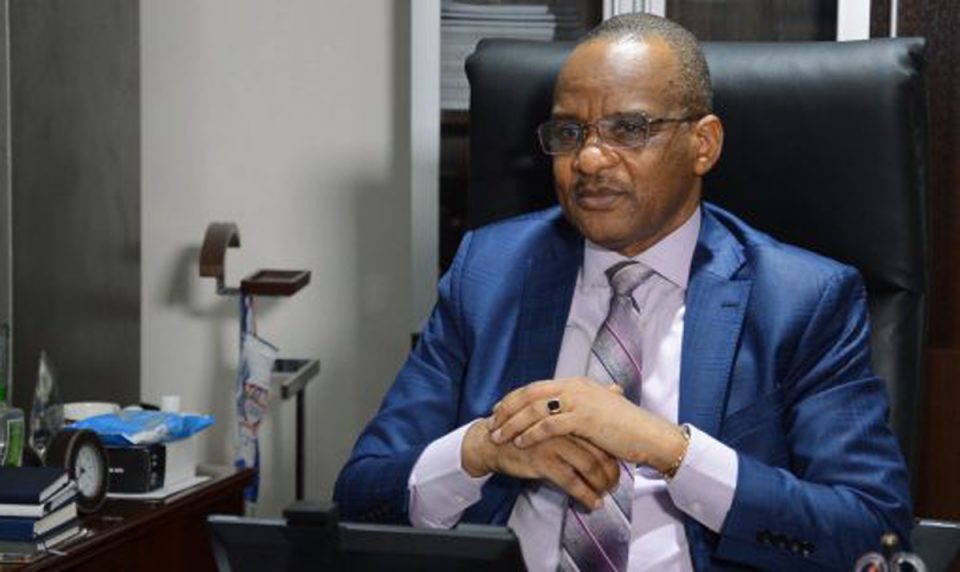“Hence, the ministry explicitly gave its nod to the expansion of the programme by another set of 435 new students to be recruited into the NSDP.
“We urge the beneficiaries to be good ambassadors of the nation and justify the massive investment in you. This programme is a rare opportunity that is highly sought after by your peers, but providence has placed it on you and must be guarded jealously for the development and benefit of the nation.
“We will continually monitor your progress in the programme and will not hesitate to discipline the recalcitrant ones among you. I urge you all to eschew drugs and any conduct that will portray the nation in a bad light.”
Earlier, the NIMASA Director-General, Dr. Bashir Jamoh, noted that the training of Nigerian youths up to degree level in Marine Engineering, Nautical Sciences and Naval Architecture in some of the best MTIs abroad was to position them to compete effectively in the global maritime industry.
According to him, it was noted that the number of Nigerian seafarers on ocean-going vessels as at then had depleted over the years. The initiative, therefore, was to meet the urgent need to boost it adequately for the effective implementation of the coastal and inland shipping policy of the government.
“At some point, it was said that Nigeria had less than 10 seafarers on ocean-going vessels, while countries like the Philippines had over 400,000, and currently earn over $6 billion in forex inflow from their seafarers employed around the world.
“Countries like India, Indonesia and China also have their nationals all around the world working in the maritime industries. It is hoped that with continuous progress made and better projections in the NSDP, Nigeria will soon be among the major players in the global maritime sector.
“It is important to note that from inception to 2020, the programme has enrolled 2,041 students, while 892 are now licensed deck and engine officers, including naval architects, the rest are in their final stage of the programme.”
Also, “about 486 of the graduates are now gainfully employed and sailing in both coastal and ocean-going vessels.”
Jamoh explained that satisfied with the above success and the need to drive the government’s policy on youth empowerment further, the ministry and NIMASA approved the expansion of the programme by 435 new intakes.
“While implementing this, we took into account the encumbrances encountered in the operations of the programme in the last 12 years and ways of eliminating or minimising them, including consideration of a recruitment plan that selects the best candidates into the NSDP.
Others are: “Spreading beneficiaries across the six geopolitical zones of Nigeria; introducing conduct of conduct for all beneficiaries enrolled into the programme to safeguard the image of the country; selection of MTIs that offers the three training elements of the programme (shore-based training, shipboard training and the certificate of competency).
“This is to eliminate the long delay in securing sea time training berths that were experienced with the previous set of students.
“In addition, NIMASA comparatively got the most reasonable cost for the training and in countries of mutual recognition of CoC with Nigeria.
“In the meantime, we have recruited 400 new students into the programme and secured admission to two reputable MTIs in Greece and India. The past decade has witnessed an increase in the global trading fleet, partly on account of developments in Asia and other emerging opportunities.
“In Nigeria, the demand for seafarers has also increased on account of the cabotage regime, which requires that vessels engaged in commercial trade and operations in the coastal and inland waters in Nigeria should be manned by Nigerians.
“The expanding opportunities provided by the Liquefied Natural Gas projects have also been a major boost for manpower demand of the sector. With prospects for the commencement of operations of the Brass LNG, the expansion of the NLNG trains and the Olokola Gas project, manpower demand for that sector has doubled the existing number.
“Another prospect is the growing off-shore oil exploration and production activities, which have increased the vessel requirements to meet demand in the sector. Other areas with significant prospects include the fishing sector, the manning of inland waterway crafts and coastal tankers.
“Overall, the prospects for the future of the Nigerian shipping industry remain very bright in spite of the manpower constraints. It is our hope that the NSDP scheme will in the long run increase the pool of Nigerian seafarers for export to other countries.
To our youthful cadets, as you set sail, we make but only one demand of you – that you never lose sight of the mission of this voyage; avoid the foreign distractions that can cause a shipwreck to your budding careers and dedicate yourselves to the completion of your education so that your country’s huge investment will not be in vain. This is an opportunity of a lifetime.



